Meaningful Ways Retirees Are Spending Their Money and Time
As baby boomers retire at incredible rates, they’re changing the common perception of retirement.
This generation, commonly defined as those born between 1946 and 1964, is willing to spend on quality and what they find meaningful in their lives. And they’re spending a lot.
Called the “fastest growing consumer age-group in the world,” baby boomers spend more than any other generation. In fact, collectively they spend $400 billion more each year. Those over age 50 are responsible for half of all spending on consumer goods according to a Consumer Expenditure Survey, and they have more disposable household income than other age groups.
Health and fitness are important to them, of course, both physically and mentally. So they’re spending on that. They’re also spending on leisure activities, which are as varied as the personalities behind them. Some are even volunteering or working post-retirement jobs that give back.
Here are some of the most interesting and meaningful ways retirees are spending their money and time.
They’re Joining Senior Corps
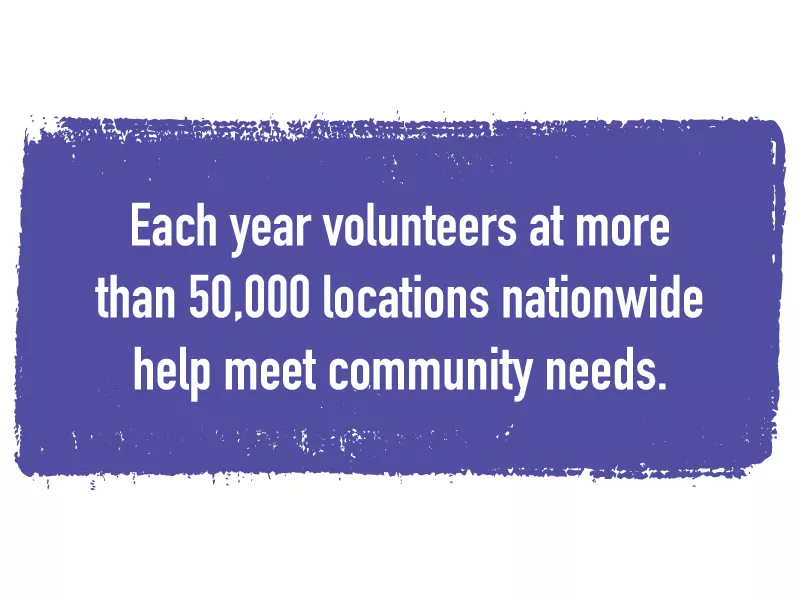
Getty Images
Recognizing that those age 55 and older are often at a point in their lives where they have more time, the Corporation for National and Community Service, a federal agency focusing on volunteerism, has established the Senior Corps, a group of over 245,000 volunteers age 55 and up.
Under the same umbrella as AmeriCorps, each year volunteers at more than 50,000 locations nationwide help meet community needs. Senior Corps acts as a clearinghouse to connect volunteers with individuals and organizations that can benefit from their knowledge, skills and experience.
They’re Becoming Foster Grandparents

Foster Grandparents, a program under Senior Corps, work with organizations to help children with exceptional needs. Retirees can help children at all stages: from caring for premature infants or children with disabilities to mentoring troubled teens or young mothers.
They may help children learn to read or help with other schoolwork or provide social and emotional support for children who have been neglected or abused.
They’re Launching Businesses

Many retirees are starting new businesses.
Many of these are small owner-operated businesses involving flexible, often part time hours. In 2013, 24 percent of new businesses were started by boomers. Boomers are also twice as likely as millennials to say they plan to launch a business in the next 12 months.
They’re Becoming “Road” Scholars
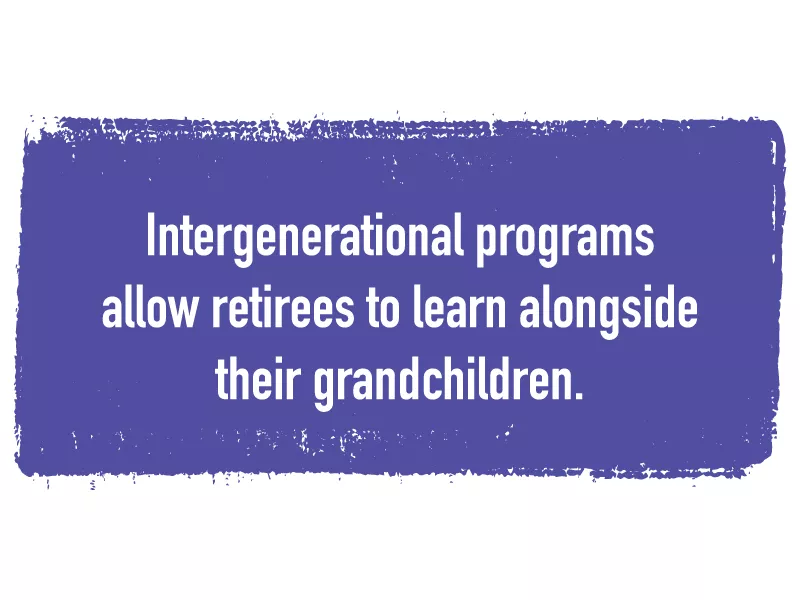
In 2009, Elderhostel International changed its name to the younger and more distinguished sounding Road Scholar. Road Scholar combines inexpensive accommodations with interesting educational programming. With over 5,500 programs to choose from in 150 countries, it’s estimated that 2,000 retirees are engaging in a learning adventure at any given time.
Programs can last from one day to more than a month with options at all activity levels and multiple price points. Some programs limit the participants to a small group; others may be women only. They also offer intergenerational programming so that retirees can learn alongside their grandchildren.
They’re Finding Encore Careers
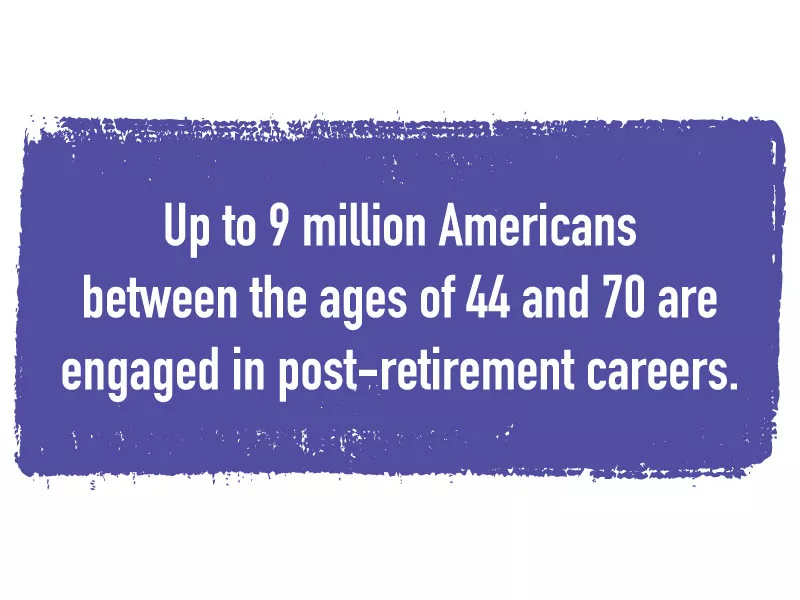
Some retirees simply aren’t ready to stop working, either through a desire to supplement income or a need to have something to do. Some get part-time jobs or even continue at their old ones on a contract or freelance basis.
Retirees often find that they are restless with too much time on their hands and miss the social interactions and sense of purpose. A study sponsored by the MetLife Foundation found that up to 9 million Americans between the ages of 44 and 70 are engaged in post-retirement careers.
They’re Acting as Seasonal Campground Hosts
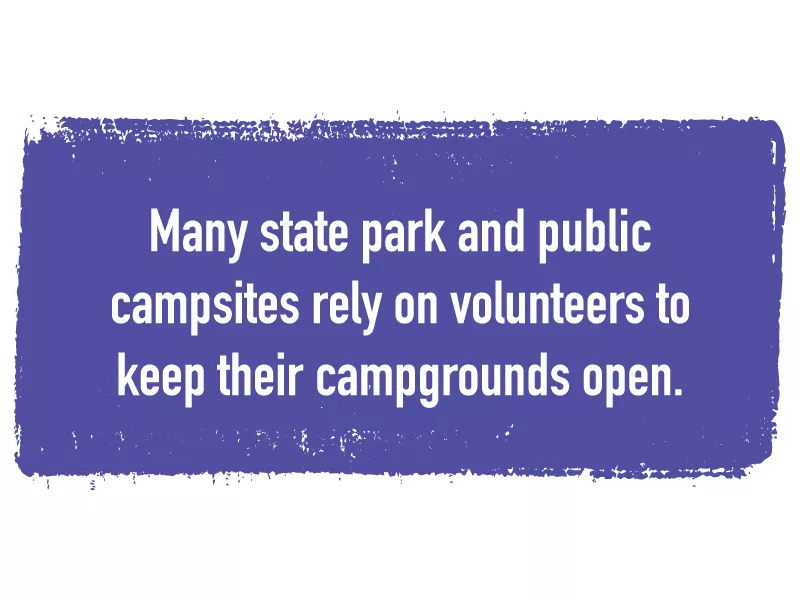
Many state park and public campsites rely on volunteers to keep their campgrounds open. In exchange, they frequently get to camp for free. Few people can take several months off of work (the typical camping season), but this is perfect for retirees who love the outdoors.
Responsibilities are minimal (generally checking people in and out and reminding them of camp rules), and there is significant free time to hike and explore the park. Depending on the location and agreement, hosts may even get to stay at multiple parks over a season.
They’re Helping Others Stay Independent
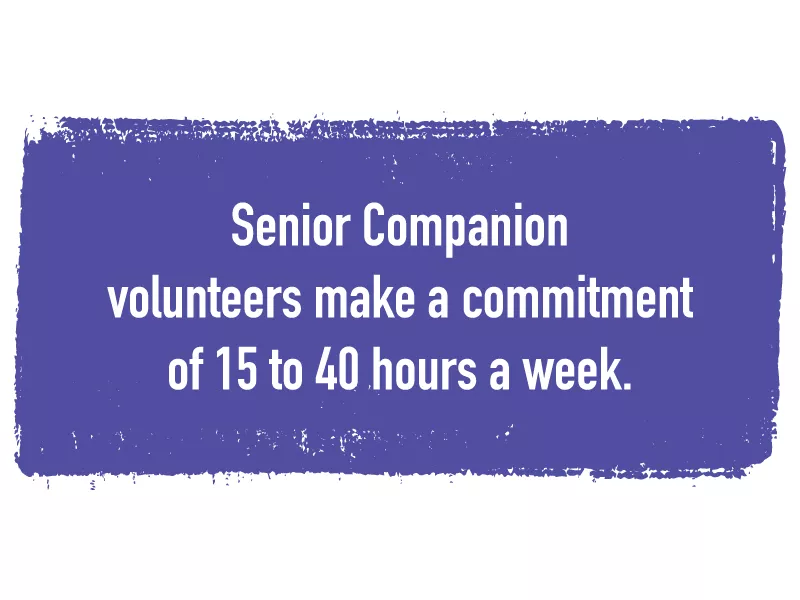
Another Senior Corps program enlists Senior Companions who work with seniors on a regular basis to help them stay independent longer. Retirees may help seniors with regular tasks like shopping or paying bills, and providing transportation to doctor and other appointments as well as providing companionship.
Senior Companion volunteers make a commitment of 15 to 40 hours a week working with two to four clients. The serving organization provides any necessary training and, in some cases, a small stipend.
They’re Using Their Talents to Improve Their Communities
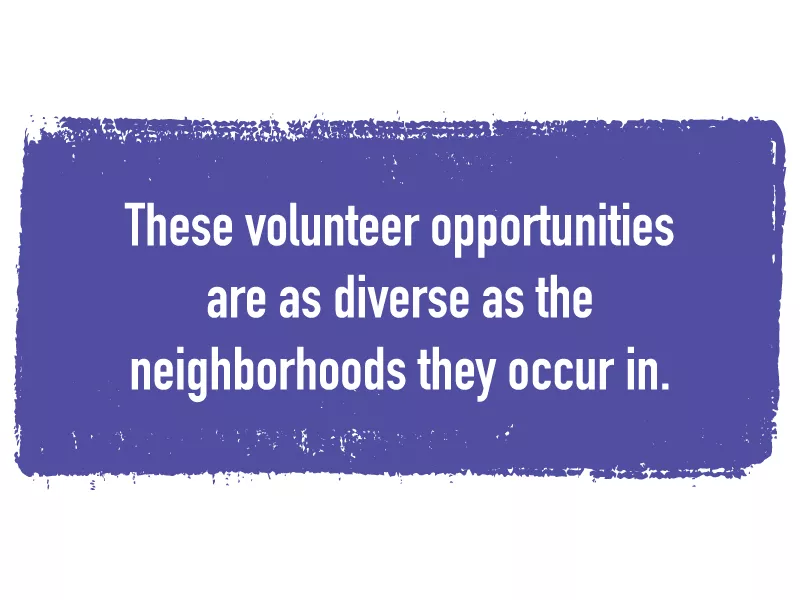
Retired Senior Volunteer Program (RSVP) volunteers fill in all the other gaps in a community. These volunteer opportunities are as diverse as the neighborhoods they occur in. They can be ongoing, or they can be occasional, like when assisting those affected by natural disasters.
RSVP volunteers may work with national organizations like Habitat for Humanity, Meals on Wheels or the American Red Cross, or with local organizations that serve the community. Frequently volunteers use their expertise to help others, for example, by helping prepare income tax returns, renovating homes, helping veterans find jobs, working on environmental issues or tutoring students.
They’re Taking Volunteering on the Road

Also known as voluntourism, many nonprofits sponsor trips to travel and help communities in crisis. Without the time constraints of a job, retirees can choose to roll up their sleeves and move to the front lines of pet causes.
They can take a week to volunteer in far-off places without sacrificing time available for a relaxing vacation. While the idea of paying for a trip to work for free doesn’t appeal to everyone, many enjoy the opportunity to give back. Some of these trips involve manual labor. Others, such as teaching English or recording and analyzing scientific data, do not.
They’re Taking Vacations, Anytime
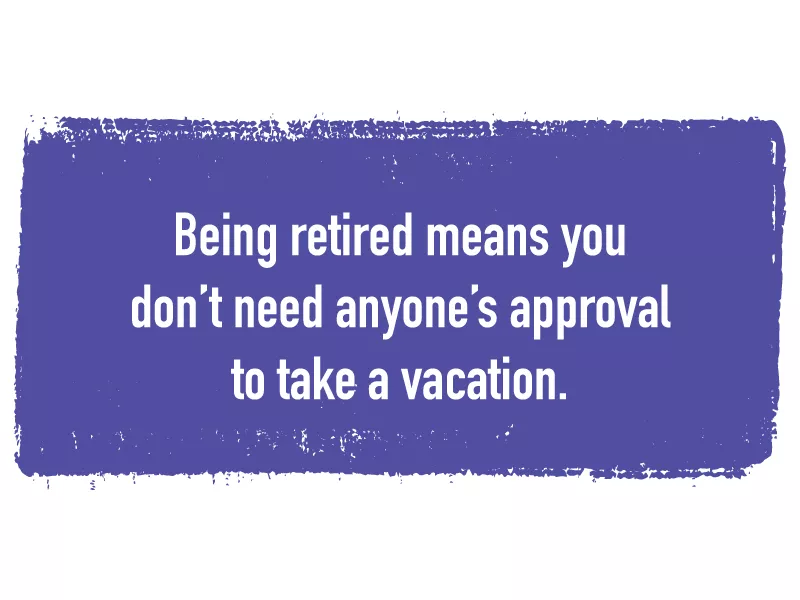
Being retired means you don’t need anyone’s approval to take a vacation, and you don’t have to worry you’ll run out of vacation days.
Many retirees take advantage of having time at their disposal and take both long and short trips to see the country or the world. Many travel venues offer senior discounts, and for those who don’t want the hassle of planning, senior travel groups and clubs can make all the plans so guests simply need to show up with bags packed.
They’re Living the Nomadic Life
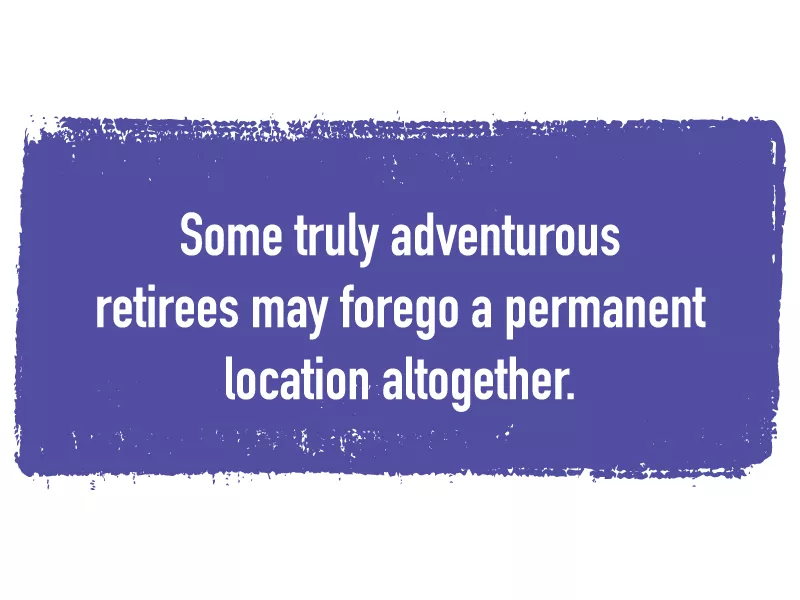
Downsizing is a trend and many are taking the idea to the extreme, choosing to live in “tiny houses” or even a boat or RV.
While selling your house and moving into a mobile one is not the right move for everyone, it gives some retirees the ability to more easily afford travel and eliminates the upkeep associated with owning a home as well as the worry of leaving your home unattended while away.
Those who are truly adventurous may forego a permanent location altogether, instead living in short term rentals. Living as a nomad allows retirees to spend as much or as little time as they want in one place and in some cases may be a less expensive option than a more settled life.
They’re Spending Time Outside

On average, adults 65 and older exercise more than the rest of the population. Their choice of activity is often low-impact activities such as hiking, bicycling, walking, paddling and swimming.
The American Volksporting Association encourages people to go for mapped out walks whereby one can earn tangible awards while exploring locations near and far. Some of these walks center around themes that can have you exploring state capitals, bridges or Underground Railroad sites. Some people are called to bigger challenges, such as running a marathon or attempting a long-distance hike.
They’re Reading, Socializing (and Playing) Online
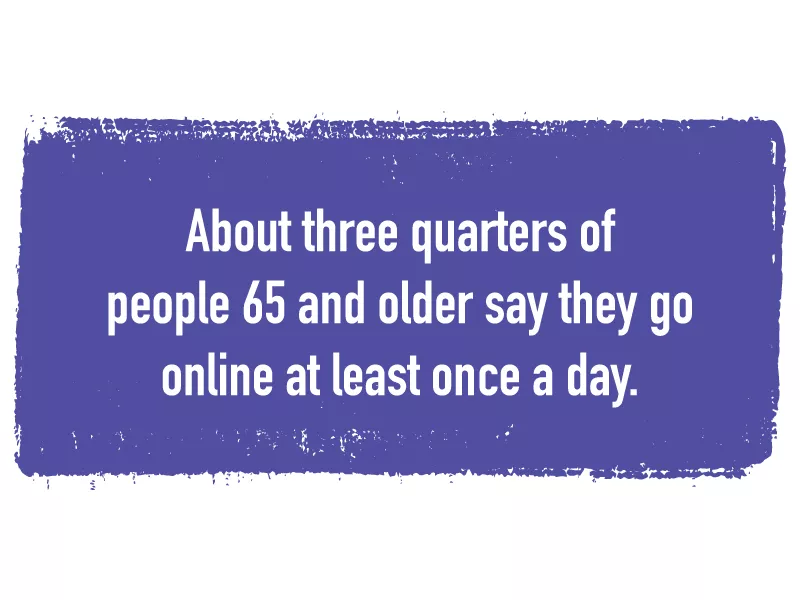
More than 42 percent of those 65 and older own a smartphone. About a third own a tablet and 34 percent are on social media. About three quarters of these people say they go online at least once a day.
Facebook is the most popular platform for this age group; most use it to connect with family and friends, or to get news, but one-in-four also use the platform to play games.
They’re Learning Nonstop
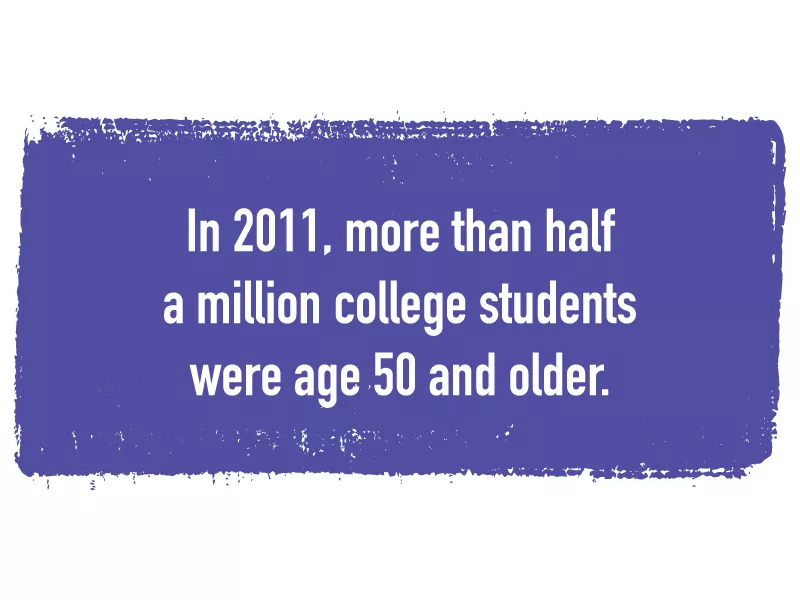
An old dog can learn new tricks.
For many, it’s not until after retirement that there is time to learn things just for fun. Many retirees try out new hobbies by taking classes in art, music, dance or cooking. Others pursue (or finally complete) a college degree.
Many towns and community colleges offer non-degree classes where one can learn anything from how to speak another language to web design.
They’re Writing Their Own Stories

With more time and perhaps a desire to share life stories and accomplishments, many retirees are taking time to write their memoirs. Some are taking a how-to class, while others are going it alone.
Having it published, or even read is not necessarily the goal. Some find they enjoy the writing process so much they then move on to novels or other writing projects.
They’re Searching for Roots

Genealogy as a hobby seems to be dominated by the over 50 crowd. It can lead to trips both down memory lane and across the country (or even overseas). Some are hoping to find long lost or distant relations; others just want to know where “their people” came from.
Researching family history can be a time-consuming and potentially costly endeavor. Home-based researchers typically spend a couple to several hundred dollars a year on website and library memberships. Collecting certified copies of documents adds to the cost.
They’re Renewing Old Passions

Many retirees finally have the time to dust off the old camera or birding binoculars and re-acquaint themselves with former hobbies. They may enjoy digging in a backyard garden or create objects using lessons learned in woodshop. Some may pull out the sewing machine or knitting/crochet needles and create clothes, blankets and accessories for themselves, gifts or to donate to hospitals, hospice or shelters.